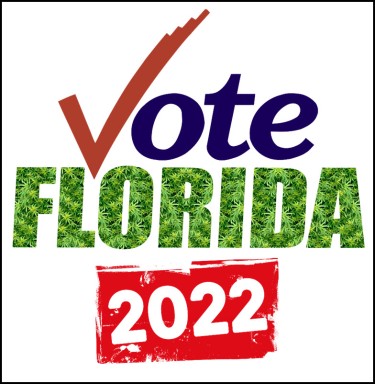
It doesn’t look great for medical cannabis businesses in Florida as the government suggests they pay more to operate within the state. This latest notion was made public by Republican Governor Ron DeSantis, who believes that the state should charge medical cannabis businesses more to operate in the Sunshine state legally. But since DeSantis is a conserative Republican, it may actually be a good thing as opposed to what he could have said about legalization. Getting more money out of cannabis companies is not a bad thing as opposed to reefer madness rhetoric like, "Shut it down!", "No Marijuana in Florida!", "No recreational ever in this great state!"
DeSantis, an early favorite to run for President, just wants more money from marijuana companies, which compared to what some conservatives want to see done to the marijuana industry, is not totally a bad thing.
It is pay to play, and DeSantis wants more pay for the Florida play. He never said shut it down or make it illegal.
Based on the Tampa Bay Times reports, Governor Ron DeSantis affirmed that medical cannabis businesses should pay more for their operating license. He believes his stance is justified considering how valuable the licenses are and their high demand. However, the governor did not specify if he was referring to cannabis businesses already operating within the states. One of them is Trulieve Cannabis Corp., new cannabis businesses looking to venture into the Florida cannabis market.
Whatever the case, Ron DeSantis’s plans will be an essential topic of discussion among significant companies within the state, be it companies that are fully established in Florida or those with just their headquarters based in the state. These big companies include Verano Holdings, Fluent, Curaleaf Holdings, Red White & Bloom, and Columbia Care.
The impactful news from Governor Ron DeSantis hit the media just a few weeks after MedMen Enterprises Inc., a multi-state cannabis operator, sold its Florida operations at $63 million to Green Sentry Holdings LLC. Similarly, Trulieve also launched a medical dispensary in Kissimmee earlier this month.
As far back as 2015, medical cannabis businesses in Florida had to pay approximately $60,000 to legally sell low THC concentrations of cannabis products. Apart from this, companies must also renew their operating license every two years. DeSantis believes it will be folly of the state government not to take the best opportunity to make money from cannabis licensing. Although he thinks it would take a statutory change by the Legislature to make such effective changes, he believes an administrative rule could not get such changes.
What makes Florida’s medical cannabis licenses so valuable?
Sally Kent Peebles, a partner at Vicente Sederberg LLP, the national cannabis law firm, gave a profound insight into why Florida’s medical cannabis licenses are the most valuable worldwide. According to the Jacksonville-based partner, Florida’s medical cannabis licenses attract such value, courtesy of the well-defined structure of the state’s medical cannabis industry.
Peebles further explained that most states have cheaper licensing fees because the growth of cannabis businesses is still restricted even after acquiring a license. But that’s not the case in Florida. In the Sunshine State, one license gives medical cannabis businesses unlimited ability to expand and open as many facilities in different locations within the states.
According to Peebles, most cannabis businesses don’t earn huge profits as it is popularly believed. This is because of the ghost income tax that many of these cannabis businesses are compelled to pay. The ghost income tax considerably eats into the profit of medical cannabis businesses, given its rate of 85% or higher. Hence, the common notion that cannabis businesses are raking in millions of dollars while they sit back and watch their business flourish as they laugh at everybody else is far from reality.
If the licensing fee should increase, Peebles strongly believes that medical cannabis businesses shouldn't be discouraged from running a business in Florida. She believes this to be true, given the many rumours about the legalization of recreational cannabis in Florida. Thus, many companies are hopeful that the state will soon legalize recreational cannabis, which will open doors of opportunities for new and existing businesses in Florida.
New Emergency Rule
Recently, Florida health officials published the much-anticipated rule establishing THC supply limits and dosage amounts on products physicians and doctors can order for medical cannabis patients. The new law explicitly states that for non-smokable cannabis, a total supply limit of 24,500mg of THC can be supplied to patients in 70 days. That’s not all; dosage limits for various forms of cannabis use like tinctures, inhalation, and edibles are also established.
The new emergency rule also promotes a state law establishing a limit of 2.5 ounces of smokable cannabis products within 35 days. Regarding THC smokable products like the whole flower, the limit is based on weight and not THC levels. In addition, the new rule makes room for physicians to demand an override for patients who need more than the established limits.
History of Cannabis Legislation in Florida
The Compassionate Medical Cannabis Act was enacted in 2014, providing patients access to medicinal cannabis. The Act states that epilepsy and terminally ill cancer patients are allowed to use low-THC cannabis without penalty. Nonetheless, the Act established a sentence of a first-degree misdemeanor for physicians who order low-THC cannabis for patients without a reasonable medically inclined reason or for individuals who fraudulently claim they suffer from a terminal illness.
The Office of Compassionate Use and the Compassionate Use Registry was established by the Florida Department of Health to run, manage, and administer the medical cannabis program, including functioning as an online database for registering medical treatment providers and patients.
Even though cannabis is still illegal at the federal level and is classified as a Schedule I drug under the Controlled Substances Act (CSA), several states like Florida have approved cannabis for medical use. In 2017, the Sunshine State also enacted the “Medical Use of Marijuana Act”, which primarily oversees the state’s public health system and establishes rules that make medical cannabis easily accessible to qualified individuals. According to Reuters, about 3% of Florida’s citizens are registered on the state’s cannabis registry.
Conclusion
Governor Ron DeSantis’s plans for the state to charge medical cannabis businesses more to operate legally in Florida are all in the quest to make the best of the present opportunities. At the surface level, this might serve as a barrier for entrants to venture into the cannabis business. However, Peebles believes the prospect of Florida legalizing recreational cannabis use is more of a motivation for cannabis businesses to look past the increase if it eventually happens.







